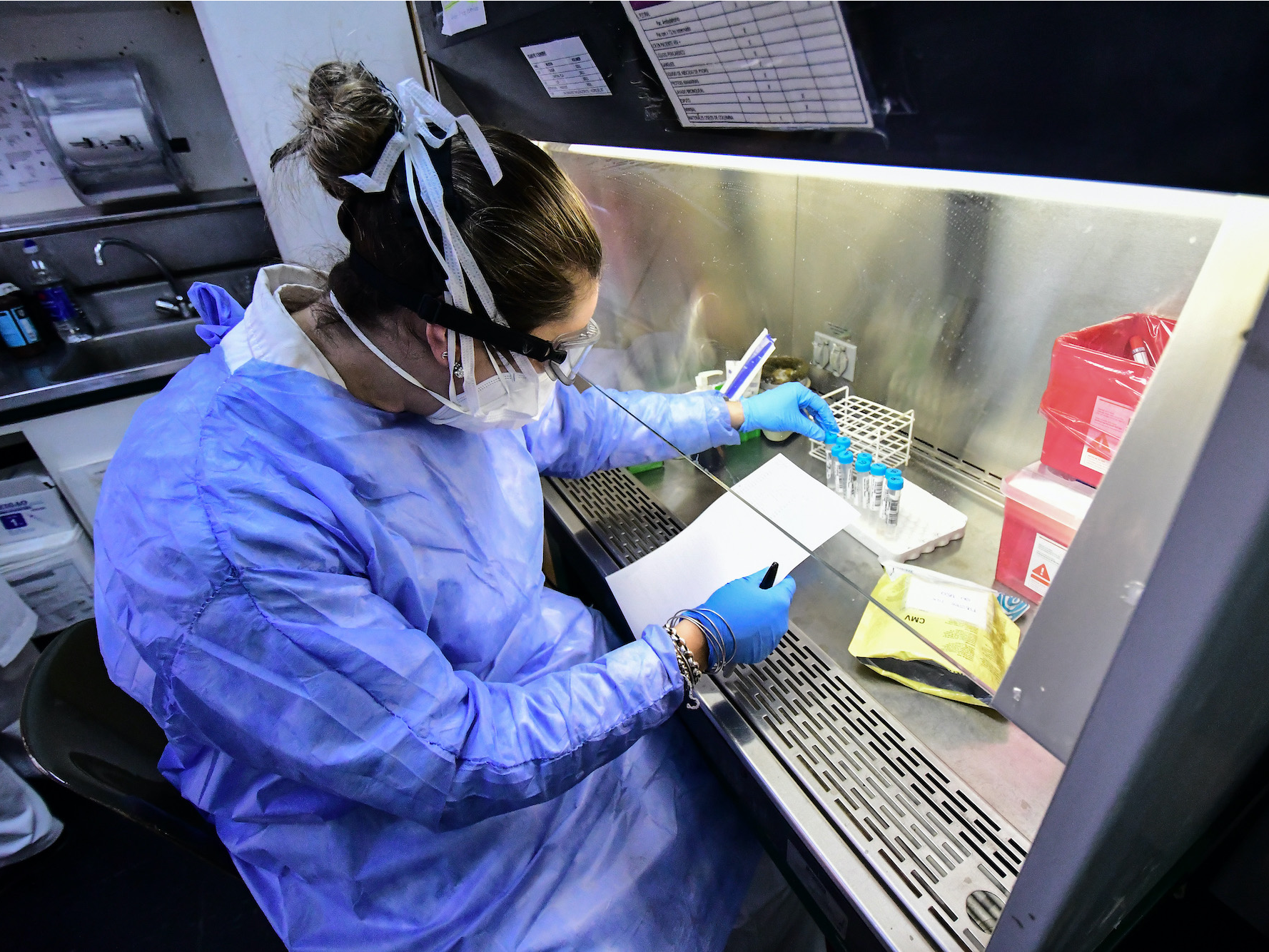
- The US Food and Drug Administration will allow for the emergency use of Regeneron’s COVID-19 antibody treatment.
- The antibody treatment was one of the drugs given to President Donald Trump after he was admitted to the hospital with coronavirus in early October.
- Regeneron said it will have enough of the treatment for 80,000 patients by the end of November.
- For more stories like this, sign up here for Business Insider’s daily healthcare newsletter.
The Food and Drug Administration has allowed for the emergency use of Regeneron’s COVID-19 antibody treatment, a step that will make it more widely available to patients.
FDA granted an emergency authorization for the drug, called REGN-COV2, to be used in people with the coronavirus who are at high risk of developing a severe case of the disease, but not for people who are hospitalized or who need oxygen. REGN-COV2 was one of the treatments President Donald Trump received after he was admitted to the hospital with COVID-19.
Regeneron said it will have enough of the drug to treat 80,000 patients by the end of this month, and 300,000 patients by the end of January. The US government purchased the doses through its Operation Warp Speed initiative, and will handle distribution.
The news comes amid a surge of coronavirus infections across the country, with daily cases soaring to record highs.
Read more: How 9 leading drugmakers are racing to develop antibody treatments
Trump has claimed REGN-COV2 was a "cure" for the coronavirus, though there is no evidence Regeneron's drug caused his recovery, and he received other treatments. Antibodies are proteins that the body produces to fight off infection and diseases.
"They gave me Regeneron — other things, too — but I think this was the key," he said, adding that he "felt good immediately" after the receiving the antibody combination.
The drug company, which started clinical trials on June 11, said that preliminary results from a trial reveal that its antibody treatment could reduce the severity of the virus in non-hospitalized patients with COVID-19.
